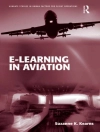Rooted in diverse cultures and in distinct regions of the world, Indigenous people have for generations created, maintained, and negotiated clear and explicit relationships with their environments. Despite numerous historical disruptions and steady iterations of imperialism that continue through today, Indigenous communities embody communities of struggle/resistance and intense vitality/creativity. In this work, a fellowship of Indigenous research has emerged, and our collective intent is to share critical narratives that link together Indigenous worldviews, culturally-based notions of ecology, and educational practices in places and times where human relationships with the world that are restorative, transformative, and just are being sought.
Spis treści
Acknowledgements from the Editors; Indigenous-Minded Innovation in Shifting Ecologies; Alternative Imaginations: Examining Complementarities across Knowledge Systems; Deep Sovereignty: A Foundation for Indigenous Sustainability; Waewaetakamiria: Caress the Land with Our Footsteps; Local Knowledge, Cultural Economies: “To Live Well” in an Indigenous Municipality of Bolivia; Spirit Food: A Multi-Dimensional Overview of the Decolonizing Diet Project; Turkana Indigenous Knowledge: Environmental Sustainability and Pastoralist Lifestyle for Economic Survival; “Why Can’t We Admire Our Own?”: Indigenous Youth, Farming, and Education in the Peruvian Andes; Adharshila Shikshan Kendra: An Experiment to Reconstitute Possibilities for Adivasi Children; Ruvden as a Basis for the Teaching of Mathematics: A Sámi Mathematics Teacher’s Experiences; Mônahaskwêwin Pahki-Nahâpaminâkonan (Harvesting Is a Part of Our Identity): Harvesting as a Traditional Land Use and Technology Paradigm; Book Contributors.









